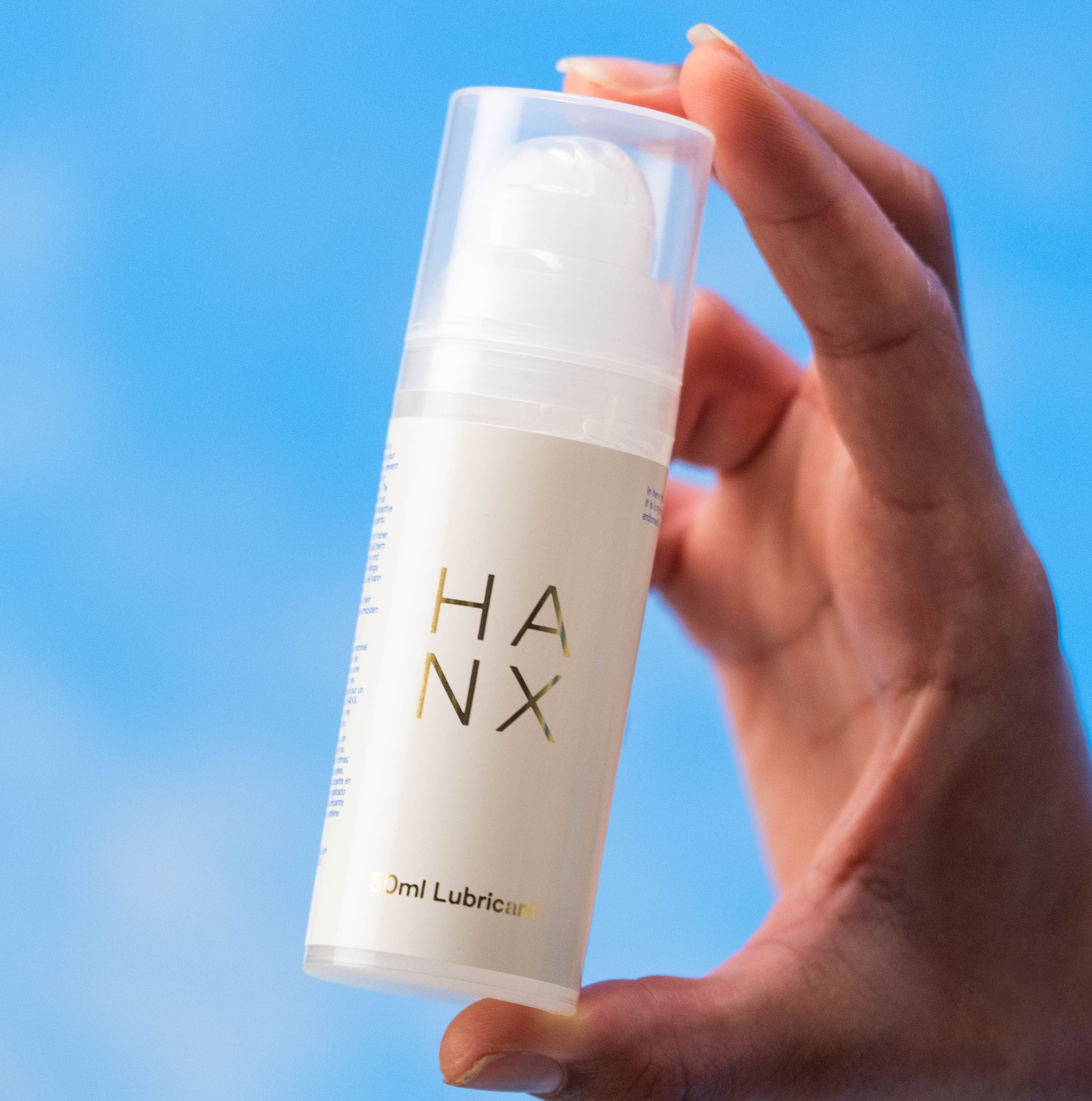Dr HANX: World AIDS Day 2020

Today is World Aids Day 2020 and a timely reminder that while COVID is currently the word on everyone's lips, that HIV/Aids are still very much here. No longer considered a 'death sentence', Dr HANX is here to fill you in on this chronic condition: from diagnosis to treatment.
What is HIV and what is AIDS?
HIV stands for Human Immunodeficiency Virus. Unlike other viruses, HIV targets the immune system and once infected, there is currently no way to cure it. If not treated, it can cause AIDS, Acquired Immunodeficiency Syndrome, a condition that can affect all of the body’s organs. The disease makes people much more vulnerable to infections and diseases, with the susceptibility increasing as the syndrome progresses. HIV is found throughout the body and is transmitted via body fluids of an infected person (semen, vaginal fluids, blood, and breast milk).
How common are HIV and AIDS?
According to UNAIDS, there were approximately 38 million people worldwide living with HIV/AIDS at the end of 2019, with an estimated 1.7 million individuals newly infected with HIV in 2019. We are part of the worldwide mission to decrease and ultimately eliminate this.
Back in the 80’s and 90’s HIV and AIDS were a death sentence. Thanks to he advent of powerful drugs in the mid-90s brought remarkable gains in survival for those who had access to these medications. Such treatment means living with HIV is not only manageable but your quality of life and life expectancy is much more likely to not be affected whatsoever. New HIV infections have been reduced by 40% since the peak in 1998 and AIDS-related deaths have been reduced by 60% since the peak in 2004.
Not only do we want to continue to decrease the new diagnoses of HIV and AIDS, we need to make sure that living with HIV is accepted in the same way as living with any long-term condition is, and which it absolutely should be.
[products tags="HANX Feels"]
Diagnosing HIV and getting tested for HIV
If you think you might have been exposed to HIV it's important to seek medical advice as soon as possible. This can be at a GP surgery, sexual health clinic or other clinics run by charities. Find your local HIV testing centre here.
If you've possibly been exposed to HIV, emergency post exposure prophylaxis (PEP) may stop you becoming infected if started within 72 hours (ideally within 24 hours).
The only way to find out if you have HIV is to have a test, and if your first test suggests you have HIV, a second blood test will need to be carried out to confirm the result. If this is positive, you will then be referred to a specialist HIV clinic for some more tests and a discussion about treatments.
Both positive and negative HIV tests may need to be repeated 1-3 months after potential exposure to HIV infection as there is a window of infection which results may not be accurate.
The number and proportion of diagnoses made at a late stage of HIV infection remain high, particularly among heterosexual men and women, meaning a poorer prognosis for these individuals.
Almost half of HIV diagnoses in Europe are among people whose immune systems have already been seriously weakened by HIV, an international team of investigators report in BMC Infectious Diseases.
HIV diagnoses in gay and bisexual men, one of the groups most affected, are declining rapidly, emphasising what can be achieved with access to condoms, testing, PrEP and diagnosing and treating people as early as possible so they can become uninfectious.
We need to remove any stigma left that surrounds HIV, and remove the element of fear around being tested for HIV. Being diagnosed and treated early means you can live a long and healthy life. Being diagnosed late runs the risk of contracting severe and sometimes life-threatening infections too late.
Knowing your status means you can get the correct treatment, manage your condition effectively and being diagnoses early has a much better outcome. There are even postal HIV test kits - take the test and take control.
Don’t let out-dated attitudes stop you protecting your future health.
Treatment for HIV and AIDS
Today, there is no cure for HIV, but treatments have evolved tremendously and are very effective and are well tolerated. Such treatments include anti-retroviral therapy (ART) and can improve quality of life considerably, in as little as one pill a day.
ART removes actively replicating HIV in the body, suppressing the virus but meaning it can remain hidden in the body. Hence, a patient must take the drugs continuously in order for it to be effective on-going.
Without treatment, the immune system becomes severely damaged by the virus, causing life-threatening illnesses including cancer and severe infections.
In 2019, 25.4 million people were accessing antiretroviral therapy, up from 6.4 million in 2009. This fantastic achievement but there is still a way to go. On the whole, patients take a combination of medications including HAART (highly active antiretroviral therapy) or cART (combination antiretroviral therapy).
Pre-exposure prophylaxis (or PrEP) is medication often used when people are at high risk for contracting HIV take HIV medicines daily to lower their chances of getting infected. PrEP can stop the virus from taking hold and spreading throughout your body. It reduces the chance of catching the virus dramatically if taken consistently.
Emergency post exposure prophylaxis (PEP) means taking medicine to prevent HIV after a possible exposure, but this must be within at least 72 hours of exposure to the virus.
Whilst these are groundbreaking medications, you cannot always rely on others to protect yourself; the best you thing can do to protect yourself against HIV (as with any other STI) is to use a condom. There are unfortunately still socioeconomic and cultural problems around HIV/AIDS and the treatment, including the need to improve education before more people can achieve viral suppression.
How do I prevent getting HIV and stop passing HIV on?
If you have sex without a condom or share an intravenous needle with someone else, you're at risk of HIV infection.
In order to prevent or reduce your risk of HIV infection, including, you can use condoms for sex, post-exposure prophylaxis (PEP), pre-exposure prophylaxis (PrEP) and if you use drugs, never share your injecting equipment (including needles, syringes, spoons and swabs) with others.
If you're HIV positive, ensure you get specialist management to reduce your viral load to undetectable and speak with your healthcare specialist for more advice on how to manage the virus. If your viral load has been undetectable for over 6 months, you are not at risk of passing on the virus through sex.
HIV in the time of COVID- what is my risk of COVID if I have HIV?
According to the World Health Organisation (WHO) there is no evidence at present that the risk of infection or complications of COVID-19 is different among people living with HIV whose immune system is stable and are on treatment when compared with the general population.
However, some people living with HIV may have known risk factors for COVID-19 complications, such as diabetes, high blood pressure and other diseases and as such may have increased risk of COVID-19 unrelated to HIV itself.
People with CD4 cell counts below 50 or an opportunistic illness from HIV in the last six months may choose to take extra precautions to protect themselves from COVID-19 infection.
Can we compare HIV to COVID?
It is difficult to compare any sexually transmitted infection (STI) to COVID, as they are very different infections, and we don't know enough about COVID-19 and have no treatment for it, yet the main STIs are treatable in the UK. However, if we look at HIV (caused by a virus and there is no cure or vaccine) and COVID (also caused by a virus with no cure or vaccine), around 0.7 million people died from an HIV/AIDS related illness last year globally, and the global death rate of COVID has reached 1 million in roughly 8 months. If we compare COVID-19 to HIV back in 2004 at its peak in death rates due to AIDS related illnesses, this was almost 2 million globally.
It seems incongruous to compare a disease of the respiratory system which is passed through air, to sexually transmitted infections which are transmitted through sexual intimacy, yet the patterns of diseases such as HIV have run a similar course to COVID-19. For example, a suppression in infection rates followed by the infection making a comeback in vulnerable sectors of society. We are seeing this happen (albeit in a shorter time frame due to the nature of spread) now with COVID, and have seen it in the past with HIV. Parallels in the two are quite appropriate, such as use of condoms versus the use of masks, the efforts of "abstinence" being it sexual or social isolating, the need for accessible and free testing to help stop the spread, and so on.
Will COVID mean fewer HIV and STI diagnoses?
STI rates continue to soar year on year, but it is likely that lockdown and the COVID-19 pandemic will reduce the numbers for 2020. This is due to social distancing rules as well as the huge reduction in people getting tested.
Although new sexual relationships are limited due to lockdown, we know they are still happening, and, what's more, fewer people are getting STI tests because of it. Lockdown has also reduced the accessibility of sexual health services, so it's important that we continue to test through STI postal kits and prevent continued spread of STIs.
However, it is unlikely any reduction in STI rates (including that of HIV) for 2020 will have a long term result in decreased infections, unless we improve education around STIs and condom use amongst those most at risk.
How to get involved this World AIDS Day?
Help raise money and awareness for people living with HIV - check out the Terrence Higgins Trust and the National AIDS Trust to get inspired and be sure to follow THE AIDS MEMORIAL over on Instagram, for stories of love, loss and remembrance.
It is time we stop the stigma, end the prejudice and raise awareness for HIV and AIDS around the world. Join the conversation over on our HANX Life forum here.
[products tags="HANX Feels"]






















